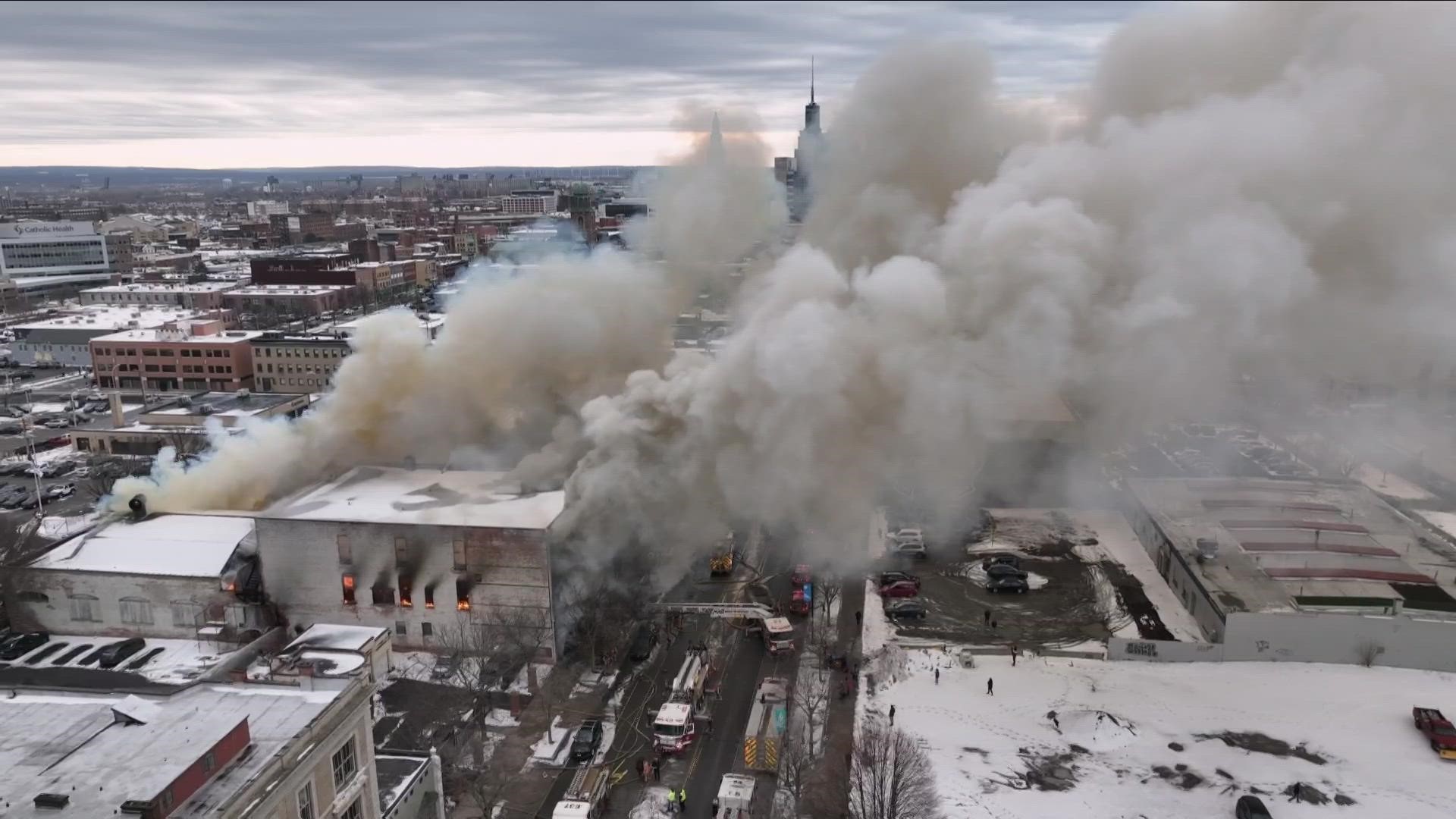BUFFALO, N.Y. — Experts in a variety of areas of expertise have arrived in Buffalo as part of the Bureau of Alcohol, Firearms, Tobacco and Explosives assistance in the investigation surrounding the fatal 4-alarm fire at 745 Main St. on Wednesday.
Those experts include certified fire investigators, a forensic chemist, explosives specialist, fire protection, accelerant detection canine, and more.
The ATF's National Response Team Leader, David Oliver, said his team is here to work alongside local agencies in whatever capacity is needed.
"While the pain of this loss will always be felt, we hope our efforts provide the answers a tragedy like this demands," Oliver said in a statement.
Along with the ATF, New York State Fire is assisting the Buffalo Fire Department in their investigation.
Buffalo Fire commissioner William Renaldo said Wednesday afternoon that his investigators believed construction crews working with torches could have started the fire.
Our partners at Investigative Post first reported that the city had no records of recent construction permits for the property at 745 Main St., the actual address 743 Main.
A city spokesperson and Mayor Brown have also confirmed this reporting.
The most recent permit for work done at the impacted building expired in October of 2022, prior to former U.S. Rep. Chris Jacobs purchasing the building.
However, Mayor Brown did tell 2 On Your Side that investigators are still trying to get a better understanding at the scope of work being done.
"Certain types of work might not have required permits, we need to see exactly what was being done," Mayor Brown said.
If permits were needed, attorney Barry Covert says several people could be criminally charged.
"Whoever failed to pull the permit for the work could be held responsible," Covert said.
The could include the building owner, Chris Jacobs, any building manager responsible for maintenance, and the construction crew.
City officials still haven't disclosed which construction crew was doing the work, or the specific type of work that was being done, or if that work needed a permit.
The penalty, however, for doing construction work without a permit is a misdemeanor.
Covert says proving something like reckless endangerment or criminally negligent homicide would be challenging.
"It's hard to imagine that there's going to be a finding that there was such a gross negligence level that they could bring criminal charges," Covert said about the more serious charges.
Covert went on to say that proving negligence in a civil liability case is much easier.
"Civil liability for negligence is almost presumed in this case," Covert said. "There was a fire, it was started, ostensibly by someone who didn't mean to start it."
"That's almost the definition of negligence," Covert added. "You can certainly expect lawsuits against anyone who has any financial interest in the building, and anybody who was involved in the construction."
WGRZ and Investigative Post reached out to Chris Jacobs for comment but did not get an immediate response.

